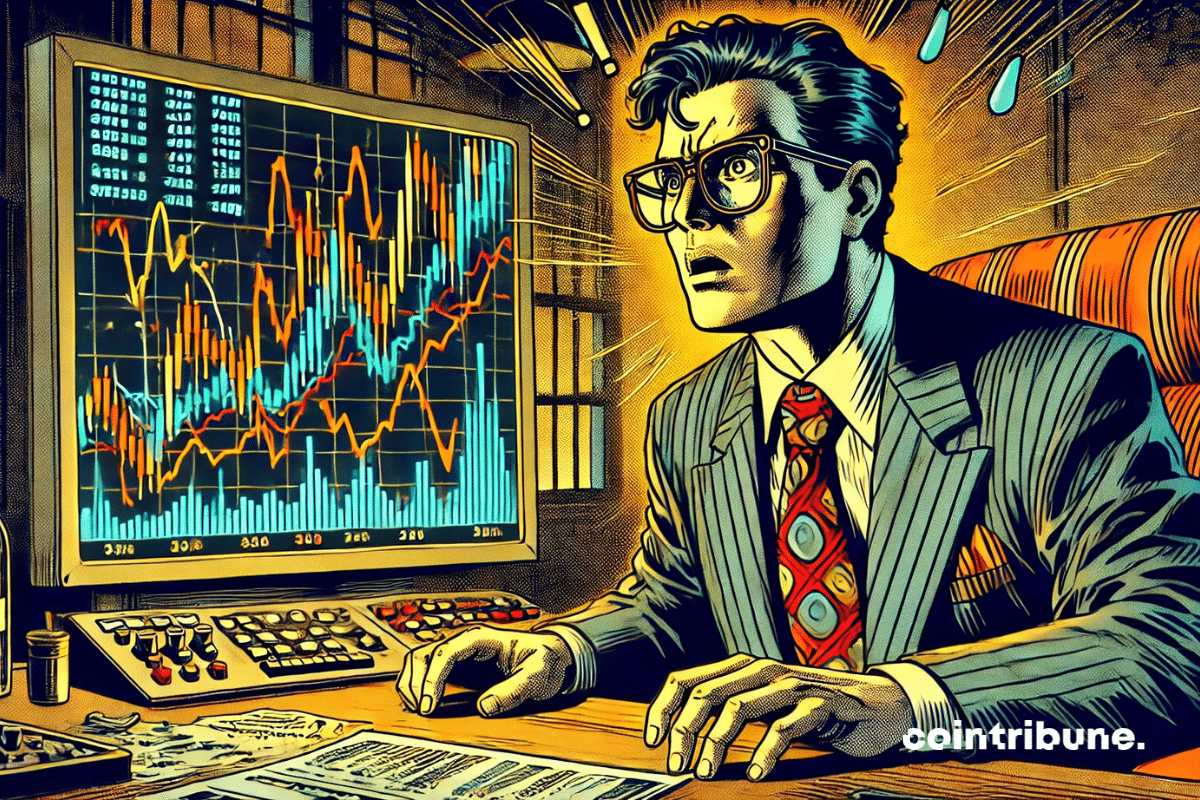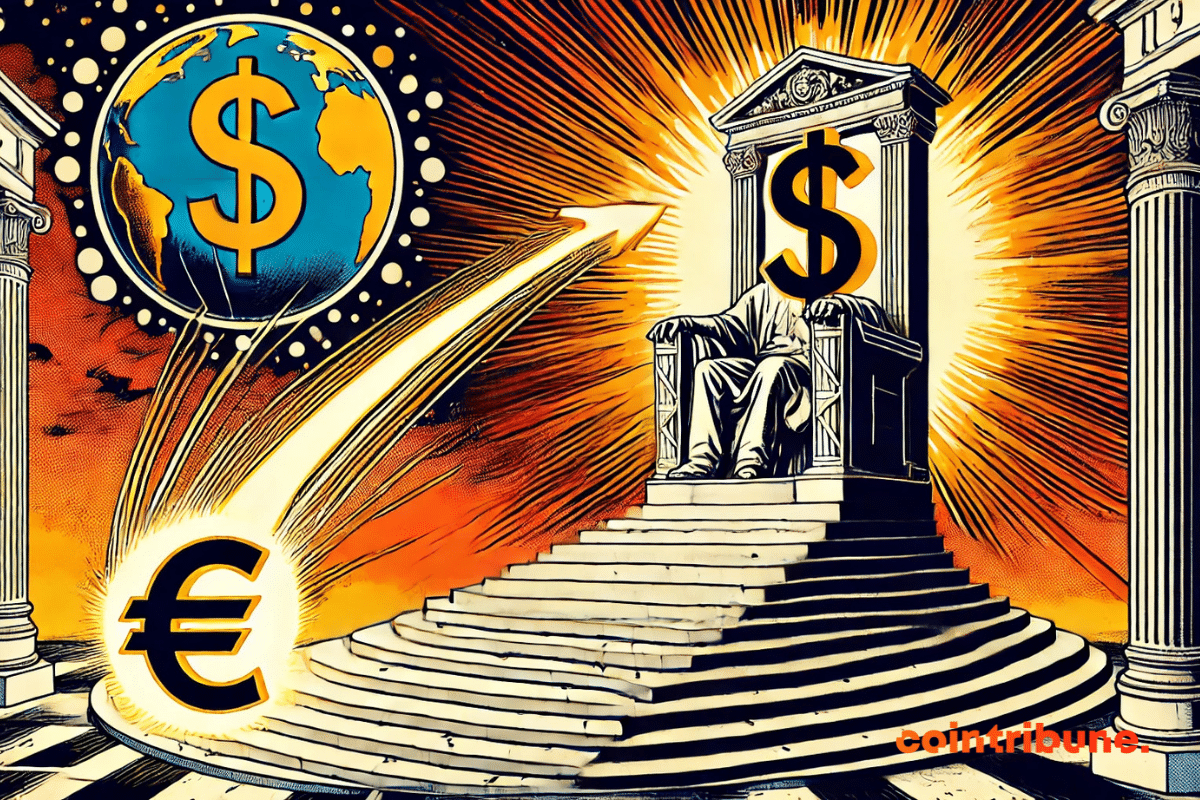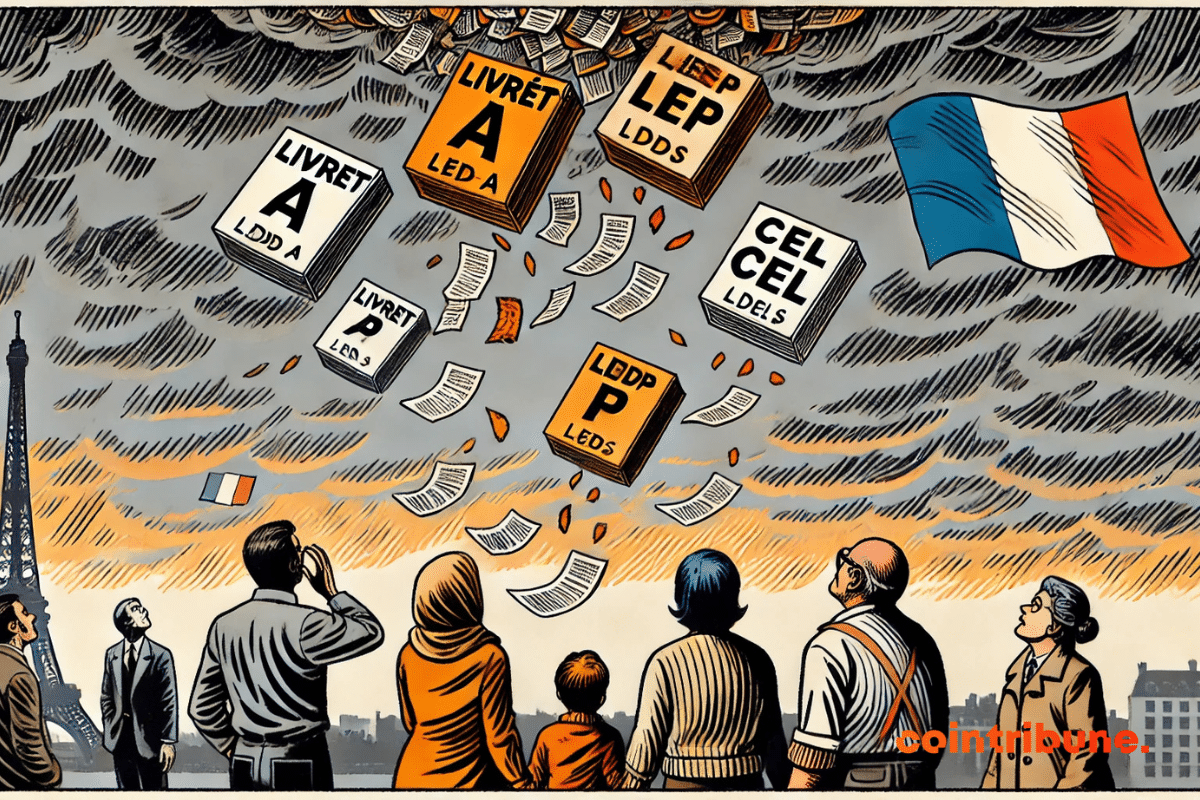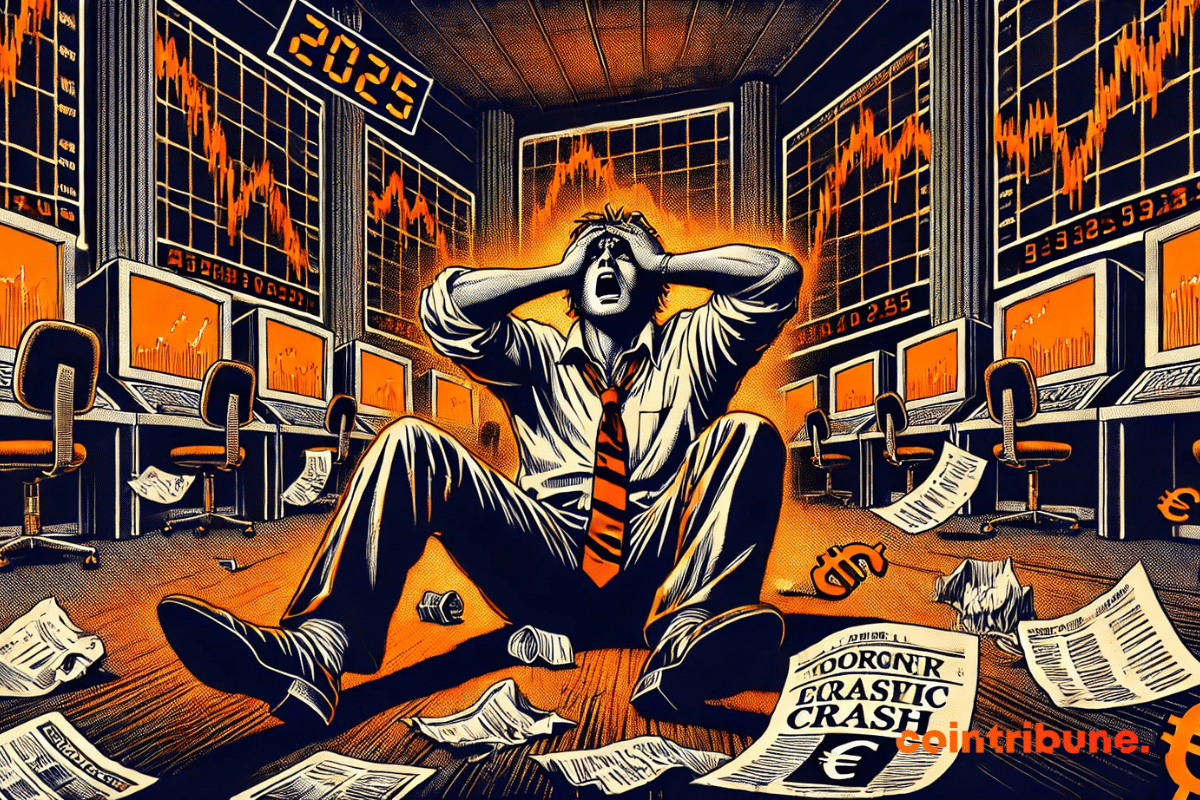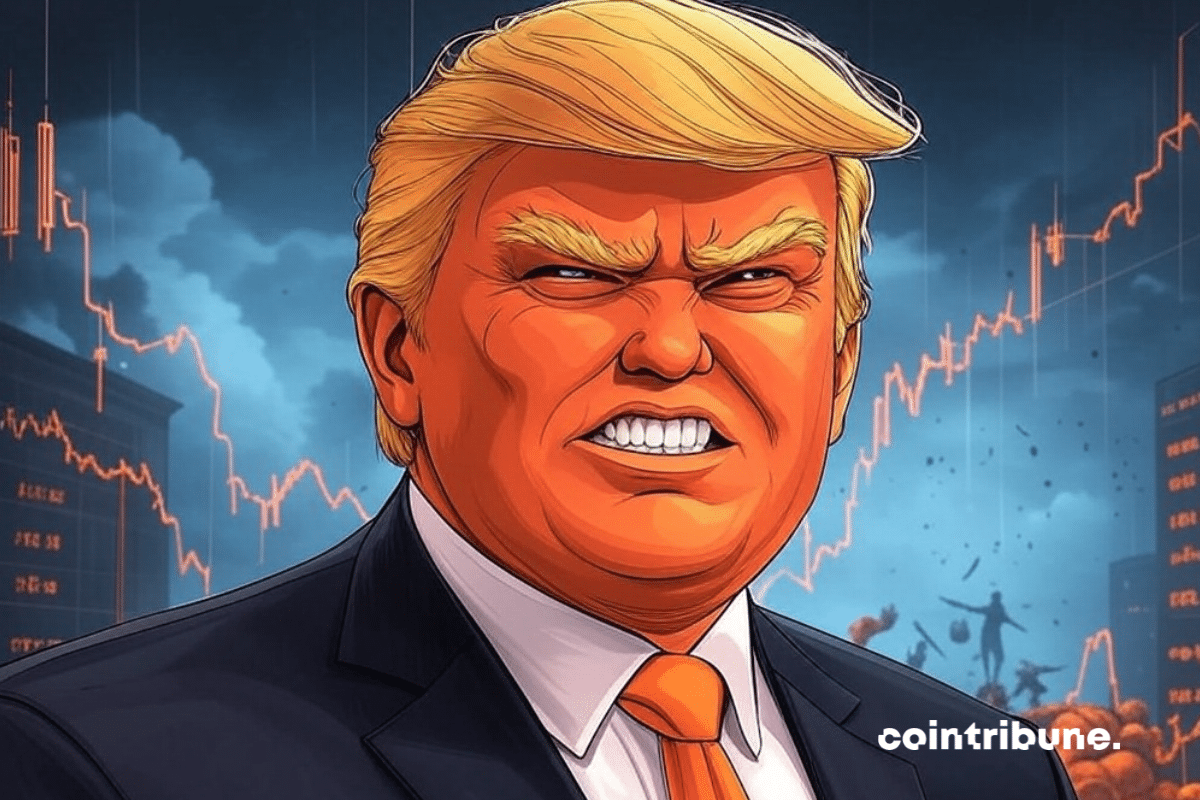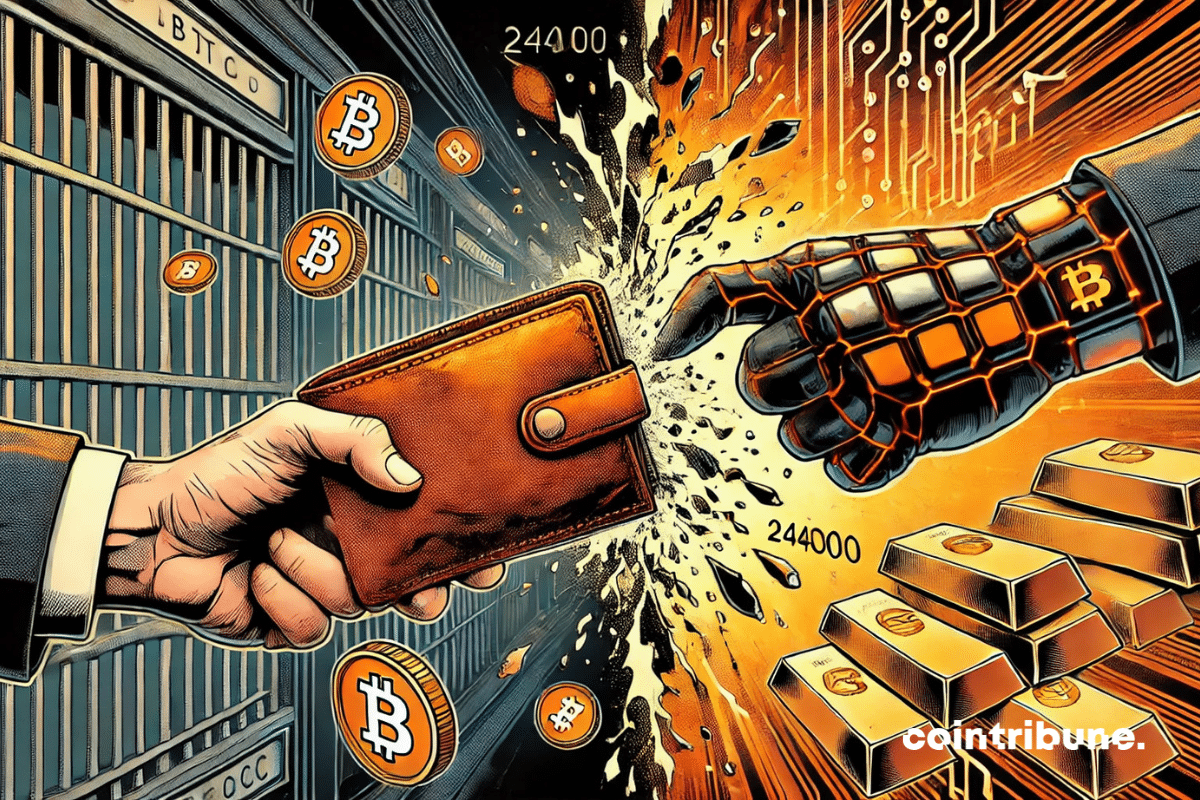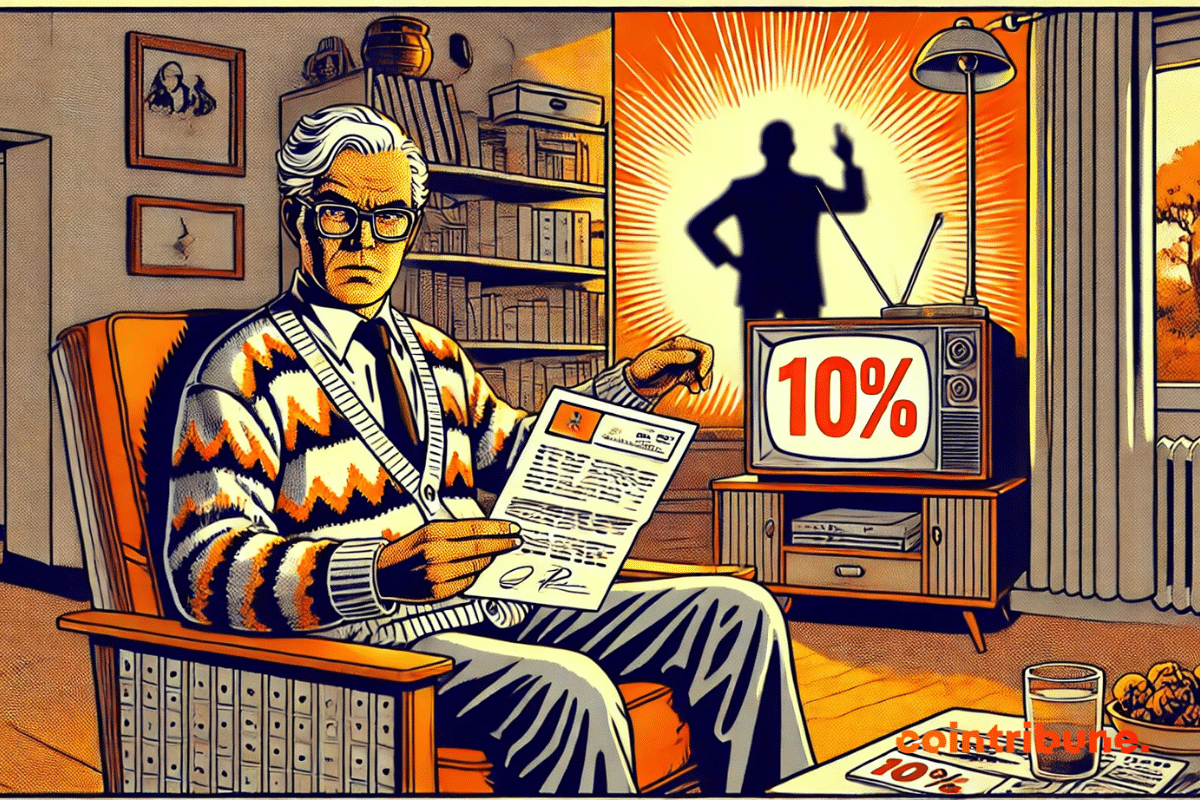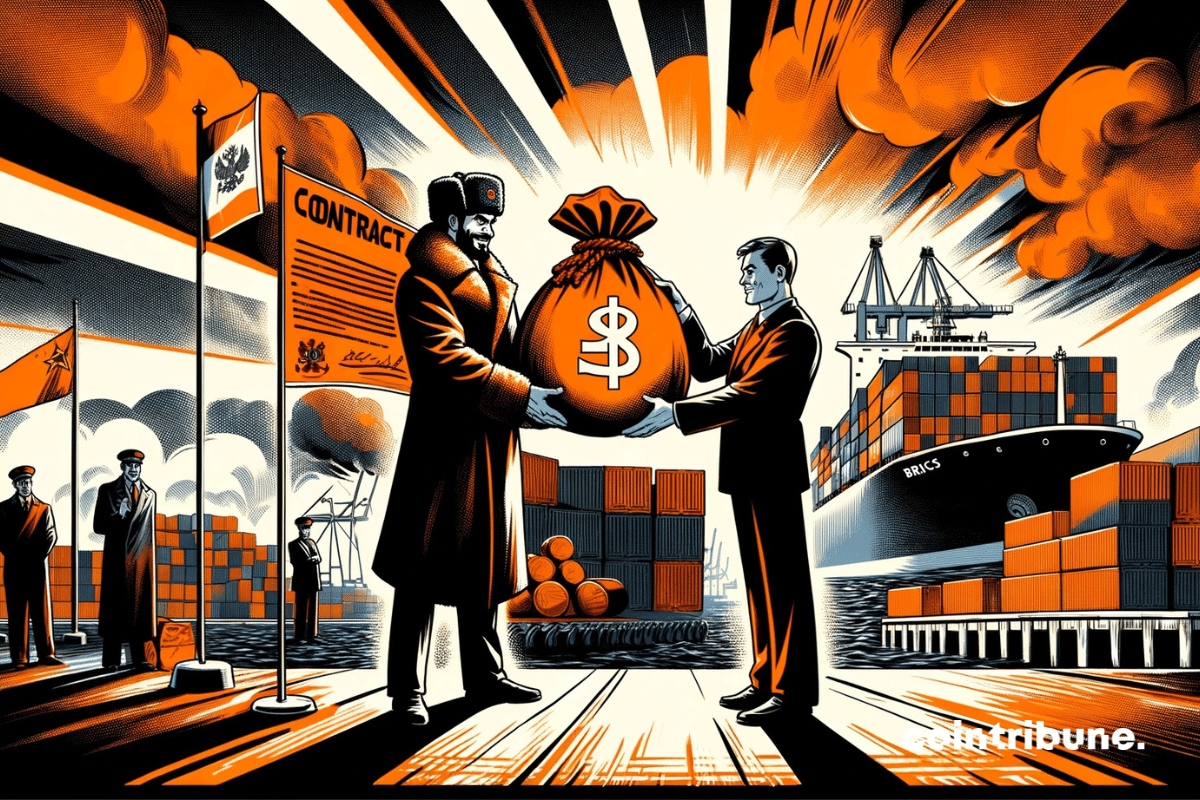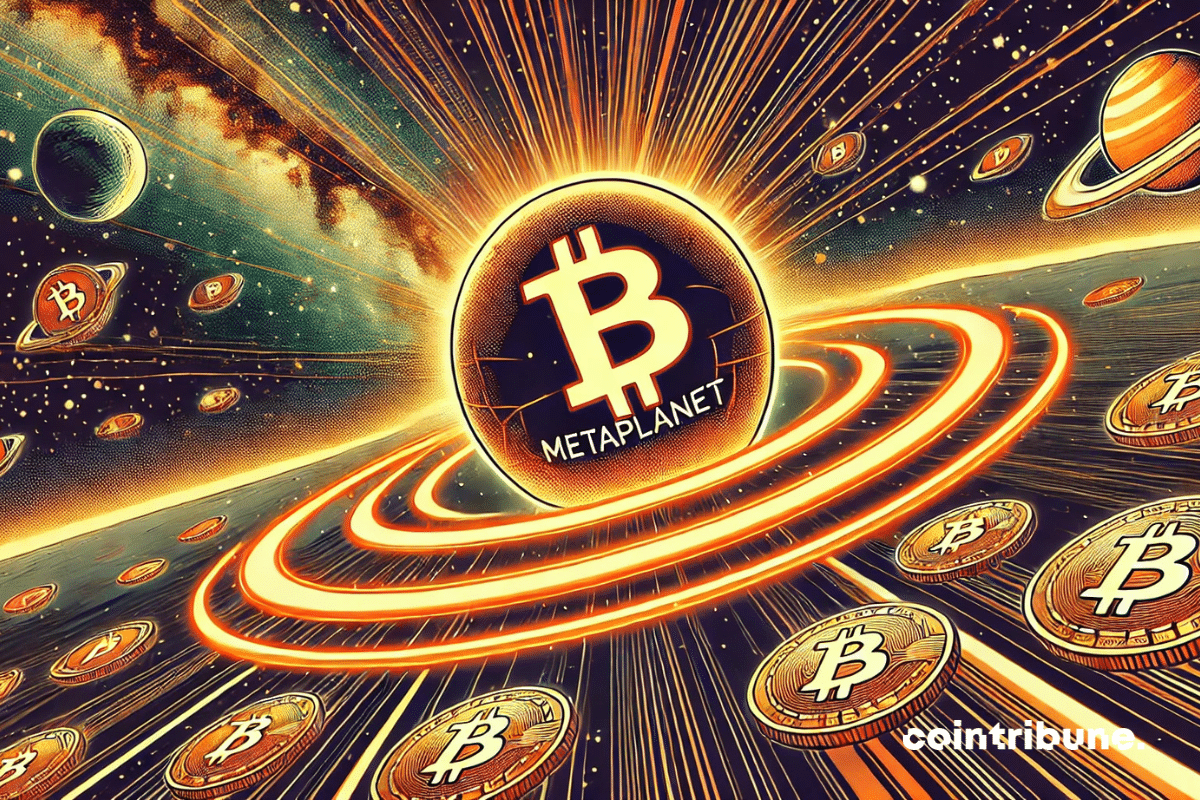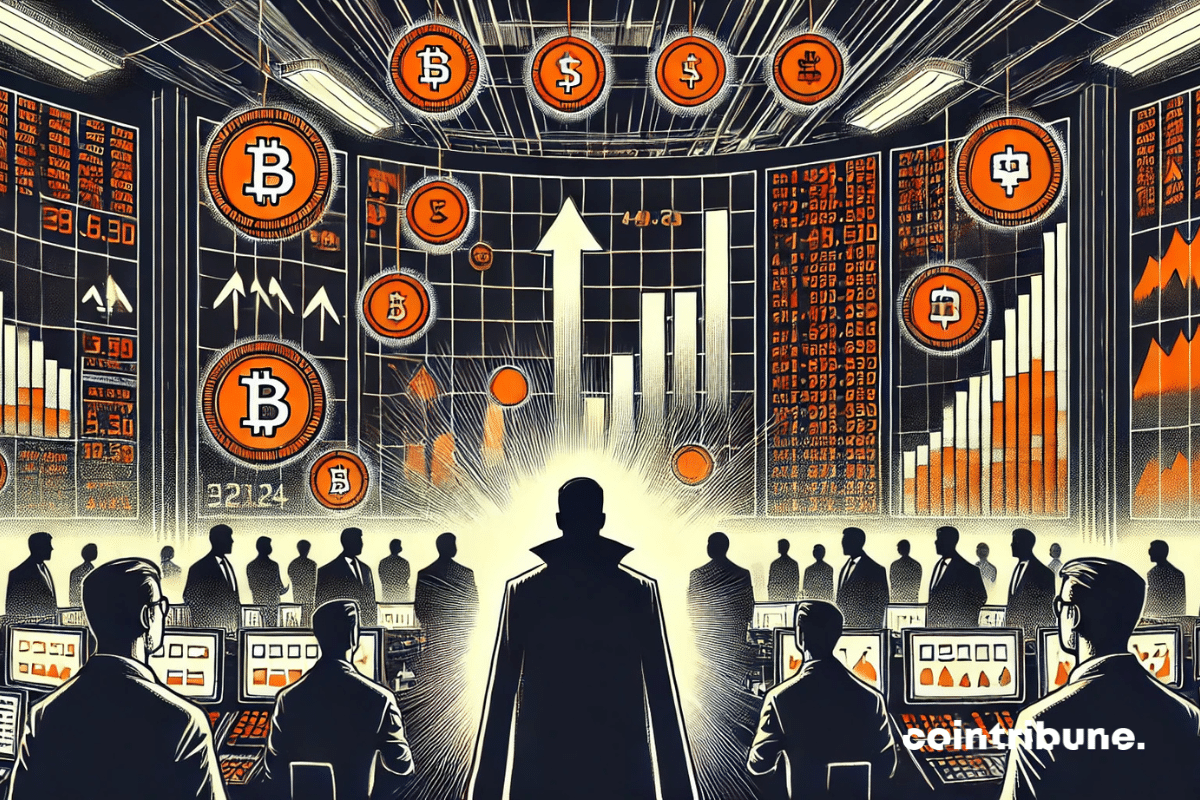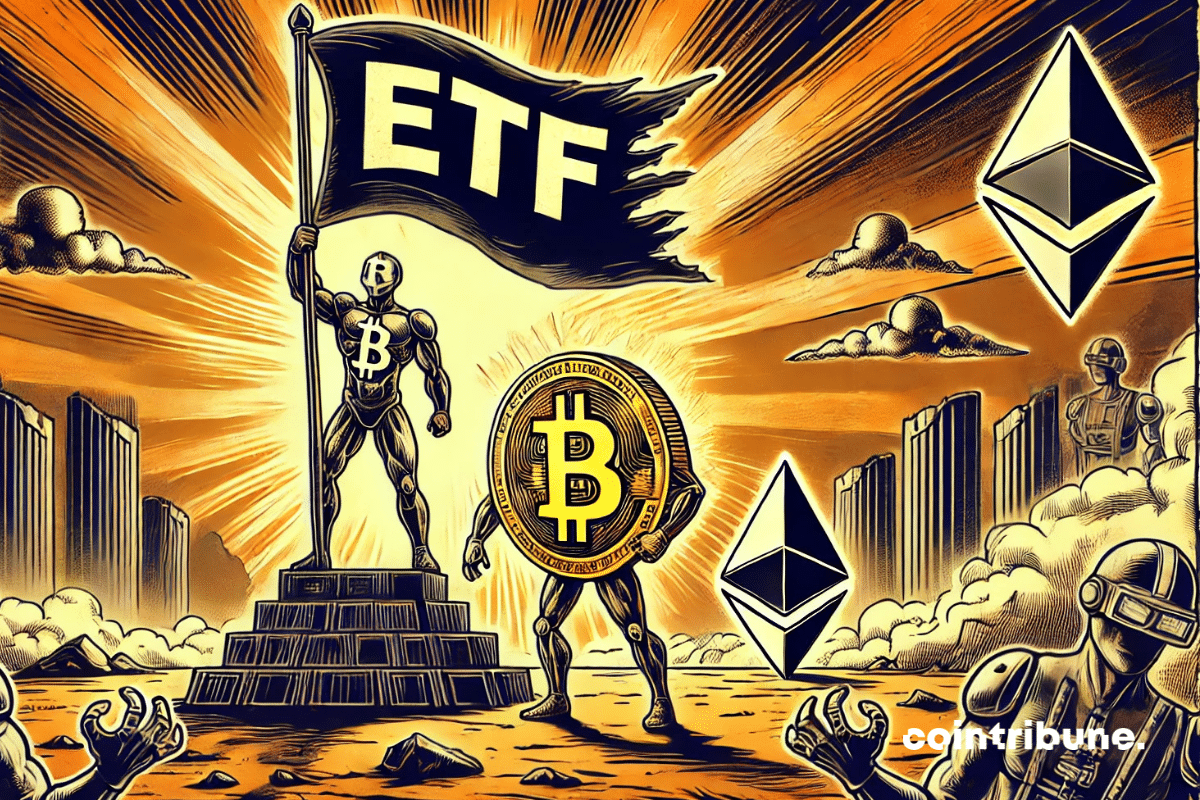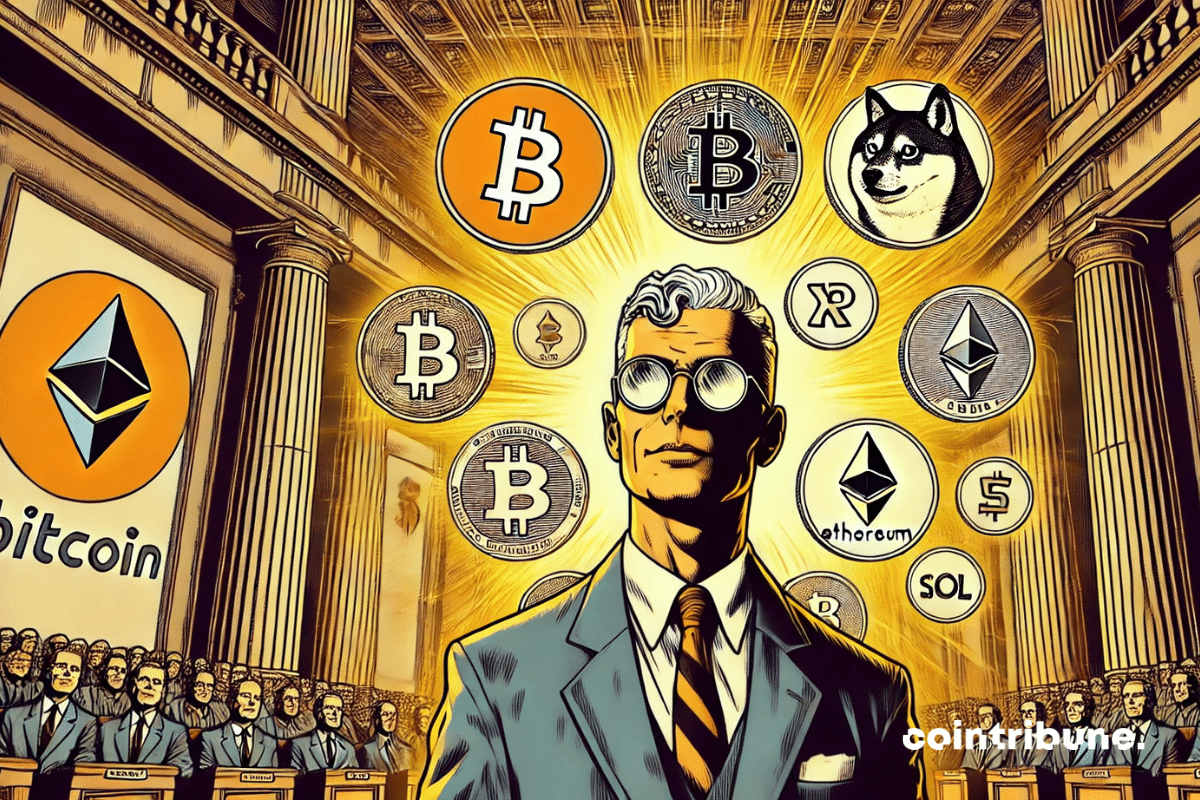Stock Market: Stock markets fluctuate under the effect of tariff tensions. Discover what this means for investors.
Finance News
While the dollar tap dances on a thread of presidential tweets, the euro is trotting towards the monetary throne, galvanized by the missteps of its starry rival.
The crypto scene could have marked a historic turning point. A partnership between Nvidia and a blockchain network, an official recognition of crypto by a giant in the semiconductor industry. Yet, as usual, hope turned into a mirage. Just a few hours before the announcement, Nvidia withdrew its support, leaving the project in uncertainty. A scenario that summarizes a tumultuous relationship: despite the technological advancements of blockchain, the Californian company sticks to a clear stance. Crypto remains persona non grata in its ecosystem.
At 1.7%, the Livret A no longer inspires dreams. The LEP saves the furniture, while the youth flee to greener, or more volatile, pastures.
Between Washington and the BRICS, India is performing a balancing act. Officially tethered to the dollar, it nonetheless allows favorable signals towards monetary alternatives to leak through. In a context of geopolitical reconfiguration where the American currency crystallizes tensions, New Delhi's ambivalent stance intrigues as much as it worries. Between overt loyalty and discreet strategies, India asserts itself as a key player in the global monetary showdown.
The British fintech Revolut shows exceptional performance in 2024, doubling its profits to $1.3 billion. This spectacular growth is explained by the influx of 15 million new users and the explosion of crypto trading following the rise of the markets.
Markets only need a stir to get excited. This time, it is Donald Trump who has rekindled the flame by suddenly softening his stance on two hot topics: the Federal Reserve and Chinese tariffs. "No plan to replace Jerome Powell," he said, breaking with his past vehement criticisms. He also opened the door to tariff relief on Chinese imports. Two gestures of appeasement that immediately boosted global financial markets, seeking reassuring signals.
In April 2025, the International Monetary Fund (IMF) darkened the economic outlook for the United States with a brutal revision: projected growth at 1.8%, down from the initially expected 2.7%. This turnaround, the most significant since the 2008 crisis, is not just a technical adjustment. It reflects a confluence of risks – trade wars, persistent inflation, a drop in consumption – that threatens to reshape the global economic balance. Behind these numbers, an unyielding observation: recent political decisions have triggered a shockwave whose aftershocks could last.
With Trump, we are witnessing the transition from a trade war to a total economic war between the United States and China.
A viral video on TikTok claims that a law banning cash has been adopted in France. In just a few days, this clip has reignited fears about the end of cash and a fully digitized society. However, this claim is false, as no legal text confirms such a ban. Behind this misleading narrative, a very real topic deserves attention: the digital euro project put forward by the ECB, which aims to complement cash rather than eliminate it.
The United States will have to abandon the exorbitant privilege of the dollar if the goal is truly to become an industrial power again. A good omen for bitcoin.
While Bitcoin is breaking records at $90,000, it’s Ripple that is thriving in Indian wallets: less noble, but evidently more playful. And the memecoins are having a laugh too.
Jerome Powell, the chairman of the Federal Reserve (Fed), is facing increasing political pressure from Donald Trump, who is calling for an immediate reduction in interest rates. But Powell has no intention of yielding. Loyal to the independence of the institution he leads, he prefers to base his decisions on economic data rather than political demands.
The economy is showing signs of fragility. The dollar is collapsing and gold is reaching a record high. Discover all the details in this article.
Gold continues to shine at $3,400 an ounce. A good omen for Bitcoin, which will inherit this fortune sooner or later.
The possible removal of the 10% tax allowance on retirement pensions is stirring public debate. Announced in a government note, the measure is as concerning as it is divisive. What was once just a budgetary avenue has now become a strong social marker, crystallizing tensions around taxation and the treatment of retirees. In a pressured economic climate, this potential reform raises a central question: how far can the State go without breaking the balance between generations?
Russia, an influential member of the BRICS bloc, has just crossed a historic monetary milestone: in February, more than half of its imports were settled in rubles. This strategic advancement, confirmed by the Central Bank, is part of a clear break with the dollar-dominated system. As tensions with the West escalate, Moscow is redirecting its trade towards partners deemed "friendly," thus redefining global financial balances and accelerating its trajectory towards strengthened economic autonomy.
While Wall Street stutters, Metaplanet, the crypto-yen samurai, stacks bitcoins like others stack Treasury bonds. Michael Saylor applauds. The Fed coughs in its corner.
While Trump plays the customs officer, Tesla wavers, Alphabet holds firm, and Wall Street takes on water. The markets, on the other hand, brace for the next presidential tweet.
As the bank failures of 2023 continue to shake the markets, economist Peter Schiff is fueling fears of a total collapse of the American financial system. Known for his attachment to gold, he warns that a recession of historic proportions is underway and that all banks are destined to fall. Thus, this radical diagnosis, issued in an already tense context, reignites the debate over the strength of financial institutions and the viability of economic policies pursued since the 2008 crisis.
Peter Brandt's explosive prediction about Ethereum (ETH) has electrified the crypto community. This veteran trader, whose career spans five decades, anticipates a collapse in the price to around $800, a level unseen since 2022. While ETH struggles to stabilize above $1,600, this warning reignites debates about the uncertain future of the second-largest cryptocurrency. Between relentless technical analysis and the unwavering optimism of certain industry figures, the market is divided. But who is really right?
While the United States tightens its tariff arsenal, the rest of the world is organizing itself. Thus, the BRICS bloc attracts economies seeking strategic independence. Breaking away from the established monetary order, this alliance is reshaping trade routes and weakening the dollar's dominance. A silent but structural shift is underway.
The Bank for International Settlements (BIS) has just issued an unprecedented warning: cryptocurrencies and decentralized finance (DeFi) may have crossed a critical threshold, threatening global financial stability. Behind this observation lies a paradox. While the crypto ecosystem prides itself on democratizing finance, according to the BIS, it could amplify inequalities and create unexpected systemic risks. Between massive adoption, shaky regulation, and contagion effects, here is an analysis of a warning that is shaking the markets.
Stock tokenization, still a modest segment, could experience spectacular expansion in the coming years. According to several industry leaders, this market is expected to surpass $1 trillion in market capitalization in the medium term, driven by growing institutional interest.
While Bitcoin struts on the stock market like a peacock in rut, Ethereum broods in silence. Zero inflows, zero outflows: investors have clearly put Ether on a dry diet.
In 2025, record US debt issuance is worrying the markets. Is crypto becoming the last refuge? Analysis.
In a recent explosive statement, Donald Trump did not mince his words regarding Jerome Powell. The American president stated that the "resignation of the Fed chief couldn't come soon enough" and that he would not hesitate to fire him if he wanted to.
Galaxy Research proposes a new voting mechanism to adjust the inflation of SOL on the Solana blockchain. This innovative system aims to surpass the limitations of binary voting by introducing a more representative decision-making method, thereby strengthening the decentralized governance of the Solana crypto ecosystem.
Donald Trump has renewed his attacks against Jerome Powell, the chairman of the Federal Reserve. He accuses him of not acting quickly enough to lower interest rates. Amid political tension, this criticism reignites the debate over the FED's independence and its growing influence on financial markets.
Cryptos are gaining legitimacy. Powell is betting on stablecoins and clear legislation, with appropriate regulations, even in the face of less optimistic economic forecasts for the United States.
